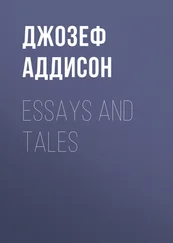Noah Webster - A Collection of Essays and Fugitiv Writings
Здесь есть возможность читать онлайн «Noah Webster - A Collection of Essays and Fugitiv Writings» — ознакомительный отрывок электронной книги совершенно бесплатно, а после прочтения отрывка купить полную версию. В некоторых случаях можно слушать аудио, скачать через торрент в формате fb2 и присутствует краткое содержание. Жанр: foreign_prose, foreign_antique, на английском языке. Описание произведения, (предисловие) а так же отзывы посетителей доступны на портале библиотеки ЛибКат.
- Название:A Collection of Essays and Fugitiv Writings
- Автор:
- Жанр:
- Год:неизвестен
- ISBN:нет данных
- Рейтинг книги:5 / 5. Голосов: 1
-
Избранное:Добавить в избранное
- Отзывы:
-
Ваша оценка:
- 100
- 1
- 2
- 3
- 4
- 5
A Collection of Essays and Fugitiv Writings: краткое содержание, описание и аннотация
Предлагаем к чтению аннотацию, описание, краткое содержание или предисловие (зависит от того, что написал сам автор книги «A Collection of Essays and Fugitiv Writings»). Если вы не нашли необходимую информацию о книге — напишите в комментариях, мы постараемся отыскать её.
A Collection of Essays and Fugitiv Writings — читать онлайн ознакомительный отрывок
Ниже представлен текст книги, разбитый по страницам. Система сохранения места последней прочитанной страницы, позволяет с удобством читать онлайн бесплатно книгу «A Collection of Essays and Fugitiv Writings», без необходимости каждый раз заново искать на чём Вы остановились. Поставьте закладку, и сможете в любой момент перейти на страницу, на которой закончили чтение.
Интервал:
Закладка:
But youth is the time to form both the head and the heart. The understanding is indeed ever enlarging; but the seeds of knowlege should be planted in the mind, while it is young and susceptible; and if the mind is not kept untainted in youth , there is little probability that the moral character of the man will be unblemished. A genteel address, on the other hand, may be acquired at any time of life, and must be acquired, if ever, by mingling with good company. But were the cultivation of the understanding and of the heart, inconsistent with genteel manners, still no rational person could hesitate which to prefer. The goodness of a heart is of infinitely more consequence to society, than an elegance of manners; nor will any superficial accomplishments repair the want of principle in the mind. It is always better to be vulgarly right , than politely wrong .
But if the amusements, dissipation and vicious examples in populous cities render them improper places for seats of learning; the monkish mode of sequestering boys from other society, and confining them to the apartments of a college, appears to me another fault. The human mind is like a rich field, which, without constant care, will ever be covered with a luxuriant growth of weeds. It is extremely dangerous to suffer young men to pass the most critical period of life, when the passions are strong, the judgement weak, and the heart susceptible and unsuspecting, in a situation where there is not the least restraint upon their inclinations. My own observations lead me to draw the veil of silence over the ill effects of this practice. But it is to be wished that youth might always be kept under the inspection of age and superior wisdom; that literary institutions might be so situated, that the students might live in decent families, be subject, in some measure, to their discipline, and ever under the control of those whom they respect.
Perhaps it may also be numbered among the errors in our systems of Education, that, in all our universities and colleges, the students are all restricted to the same course of study, and by being classed, limited to the same progress. Classing is necessary, but whether students should not be removeable from the lower to the higher classes, as a reward for their superior industry and improvements, is submitted to those who know the effect of emulation upon the human mind.
But young gentlemen are not all designed for the same line of business, and why should they pursue the same studies? Why should a merchant trouble himself with the rules of Greek and Roman syntax, or a planter puzzle his head with conic sections? Life is too short to acquire, and the mind of man too feeble to contain, the whole circle of sciences. The greatest genius on earth, not even a Bacon, can be a perfect master of every branch; but any moderate genius may, by suitable application, be perfect in any one branch. By attempting therefore to teach young gentlemen every thing, we make the most of them mere smatterers in science. In order to qualify persons to figure in any profession, it is necessary that they should attend closely to those branches of learning which lead to it.
There are some arts and sciences which are necessary for every man. Every man should be able to speak and write his native tongue with correctness; and have some knowlege of mathematics. The rules of arithmetic are indispensably requisite. But besides the learning which is of common utility, lads should be directed to pursue those branches which are connected more immediately with the business for which they are destined.
It would be very useful for the farming part of the community, to furnish country schools with some easy system of practical husbandry. By repeatedly reading some book of this kind, the mind would be stored with ideas, which might not indeed be understood in youth, but which would be called into practice in some subsequent period of life. This would lead the mind to the subject of agriculture, and pave the way for improvements.
Young gentlemen, designed for the mercantile line, after having learned to write and speak English correctly, might attend to French, Italian, or such other living language, as they will probably want in the course of business. These languages should be learned early in youth, while the organs are yet pliable; otherwise the pronunciation will probably be imperfect. These studies might be succeeded by some attention to chronology, and a regular application to geography, mathematics, history, the general regulations of commercial nations, principles of advance in trade, of insurance, and to the general principles of government.
It appears to me that such a course of Education, which might be completed by the age of fifteen or sixteen, would have a tendency to make better merchants than the usual practice which confines boys to Lucian, Ovid and Tully, till they are fourteen, and then turns them into a store, without an idea of their business, or one article of Education necessary for them, except perhaps a knowlege of writing and figures.
Such a system of English Education is also much preferable to a university Education, even with the usual honors; for it might be finished so early as to leave young persons time to serve a regular apprenticeship, without which no person should enter upon business. But by the time a university Education is completed, young men commonly commence gentlemen ; their age and their pride will not suffer them to go thro the drudgery of a compting house, and they enter upon business without the requisite accomplishments. Indeed it appears to me that what is now called a liberal Education , disqualifies a man for business. Habits are formed in youth and by practice; and as business is, in some measure, mechanical, every person should be exercised in his employment, in an early period of life, that his habits may be formed by the time his apprenticeship expires. An Education in a university interferes with the forming of these habits; and perhaps forms opposite habits; the mind may contract a fondness for ease, for pleasure or for books, which no efforts can overcome. An academic Education, which should furnish the youth with some ideas of men and things, and leave time for an apprenticeship, before the age of twenty one years, would in my opinion, be the most eligible for young men who are designed for activ employments.
The method pursued in our colleges is better calculated to fit youth for the learned professions than for business. But perhaps the period of study, required as the condition of receiving the usual degrees, is too short. Four years, with the most assiduous application, are a short time to furnish the mind with the necessary knowlege of the languages and of the several sciences. It might perhaps have been a period sufficiently long for an infant settlement, as America was, at the time when most of our colleges were founded. But as the country becomes populous, wealthy and respectable, it may be worthy of consideration, whether the period of academic life should not be extended to six or seven years.
But the principal defect in our plan of Education in America, is, the want of good teachers in the academies and common schools. By good teachers I mean, men of unblemished reputation, and possessed of abilities, competent to their stations. That a man should be master of what he undertakes to teach, is a point that will not be disputed; and yet it is certain that abilities are often dispensed with, either thro inattention or fear of expense.
To those who employ ignorant men to instruct their children, permit me to suggest one important idea: That it is better for youth to have no Education, than to have a bad one; for it is more difficult to eradicate habits, than to impress new ideas. The tender shrub is easily bent to any figure; but the tree, which has acquired its full growth, resists all impressions.
Читать дальшеИнтервал:
Закладка:
Похожие книги на «A Collection of Essays and Fugitiv Writings»
Представляем Вашему вниманию похожие книги на «A Collection of Essays and Fugitiv Writings» списком для выбора. Мы отобрали схожую по названию и смыслу литературу в надежде предоставить читателям больше вариантов отыскать новые, интересные, ещё непрочитанные произведения.
Обсуждение, отзывы о книге «A Collection of Essays and Fugitiv Writings» и просто собственные мнения читателей. Оставьте ваши комментарии, напишите, что Вы думаете о произведении, его смысле или главных героях. Укажите что конкретно понравилось, а что нет, и почему Вы так считаете.












